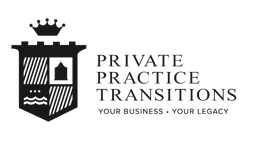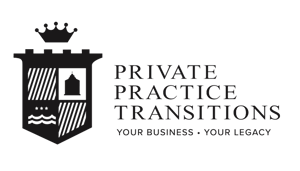Buying or selling a practice is an important decision that comes with a lot of questions. Seeking out the aid and advice of a professional business broker helps many entrepreneurs avoid common pitfalls and come across a good deal.
However, you should ask a potential business broker several questions to determine whether they are the right partner for you. Private Practice Transitions is here to help you form a professional rapport with possible brokers and offer some guidance on the sort of information that may benefit you in the early stages of the deal.
Learning About Their Experience and Track Record
It’s a good idea to go into a professional broker relationship with an understanding of the other party’s experience and track record. Start by asking the broker about the industries they specialize in and roughly how many business owners they work with.
This information will give you a clearer picture of their area of expertise and alignment with your business sector. Ask for examples of transactions similar to yours and how they managed those deals. It may be a good idea to request references from past clients to gauge their satisfaction and the outcomes they achieved.
The Scope of Their Network
A broker’s network can influence the success of your business sale. Ask your potential partner about the extent and nature of their professional connections, including relationships with potential buyers, industry experts, and other brokers.
A well-connected broker is more capable of reaching a larger pool of qualified buyers or sellers, which can lead to increased competition and a higher sale price for your business. Ask the broker how they leverage their network to conduct marketing strategies and whether they participate in industry events or organizations.
Marketing Strategy and Reach
The marketing strategy that a broker employs is essential for attracting buyers and completing a successful sale. When evaluating potential brokers, ask about their would-be approach to marketing your business.
You can ask for more details by inquiring about the platforms and channels they use to advertise, whether it’s online business listings, social media, industry publications, or direct outreach to potential buyers. A good broker will create a comprehensive marketing strategy to highlight the unique selling points of your business and seek out the specific interests of likely purchasers.

Fee Structure and Costs
Understanding the fee structure and costs associated with hiring a business broker is beneficial for transparency and prevents unexpected expenses during the sale process. Begin by asking potential brokers to outline their commission structure and additional fees.
Typically, business brokers charge a percentage of the final sale price, often around 10 percent, but this value can vary based on the complexity and size of the transaction. Additionally, inquire about upfront fees or hidden costs that might arise, such as administrative fees, marketing expenses, or valuation charges. Ideally, you want to establish a detailed agreement that specifies what services you’re implementing and what conditions could affect the overall cost.
Detailed Customer Service
It’s always a good idea to check with your broker about the customer service policies of the company. Certain companies are much more hands-on than others and prioritize customer satisfaction over just making a sale. You want to find a broker that’s going to work with you every step of the way, so check how involved you can be.
You could ask about other details, including the steps your broker will take or an estimated timeframe for the deal. Companies that specialize in good customer relationships are always better to work with and provide positive results.
Timeline and Process
Another important question you should ask a potential business broker is about their general process regarding time. How long is the typical duration of a business deal? Ideally, you want to work with a broker who has a clear goal and timeline in mind so that the deal doesn’t drag on for longer than it should. Keep in mind that the buying and selling of a business may vary depending on the industry, size of the company, and market conditions.
A knowledgeable broker should provide a step-by-step outline of the sales process, including the following:
- Initial valuation
- Preparation of marketing materials
- Buyer screenings
- Negotiations
- Final deal closing
You could also inquire about milestones and how long each stage will likely take. Ask about potential delays in the process, such as due diligence, financing issues, or legal hurdles, and how the broker plans to address them.
Valuation Methods
Determining the right valuation for your business is a fundamental aspect of the selling process, as it influences pricing and potential buyer interest. Business brokers should have extensive knowledge of a variety of valuation methods to assess the worth of your business. Start by asking brokers about the approaches they use to evaluate businesses.
Common techniques include the following:
- The Income Approach values a business based on expected future profits.
- The Market Approach assesses value by comparing similar businesses recently sold in the same industry.
- The Asset-Based Approach considers the company’s assets and liabilities.
Understanding how each method applies to your industry and whether a broker can support their valuation estimates with detailed reports and analyses is important when hiring a broker.

Confidentiality Measures
Protecting sensitive information during the business sale process is vital for maintaining the integrity and reputation of your company. When considering potential business brokers, discuss the confidentiality measures they implement to safeguard your business details. Start by asking how the broker ensures that only serious and qualified buyers gain access to confidential information.
You could require potential buyers to sign non-disclosure agreements (NDAs) before providing proprietary information or details about your business. Inquire about the broker’s protocols for handling sensitive data, whether they have secure data storage solutions, and how they limit access to qualified personnel. Additionally, discuss how they manage communication during the sale process to prevent potential leaks. Establishing firm rules for confidentiality helps you build a more professional relationship with the broker and protect any trade secrets you may have regarding ongoing operations.
If you are ready to take the next step in buying or selling a business, Private Practice Transitions has many accounting firms for sale and can help you find the deal you’re looking for. With our expert knowledge and deep industry connections, we can help you navigate the complexities of buying a business or selling yours to achieve the best possible outcome. Contact us today to start your journey toward a successful and rewarding business transition.




.jpg)

